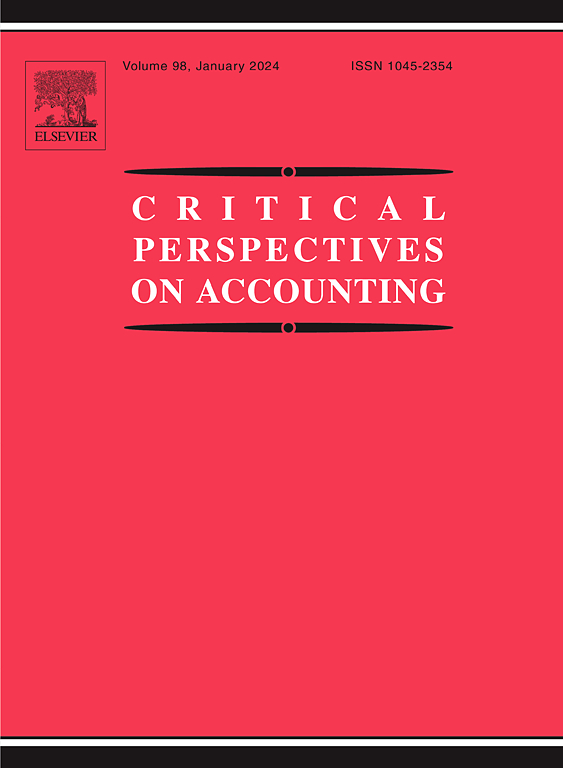是时候关心了?护理工作的时间结构
IF 5.7
2区 管理学
Q1 BUSINESS, FINANCE
引用次数: 0
摘要
组织对员工的时间使用进行控制;有些人比其他人多。本文有助于研究时间结构与家庭护理单位的案例研究,其中护理人员的时间使用计划到分钟。借鉴女性主义的时间理论,本研究对“时间”的问题提出了质疑,认为“时间”是通过时间结构来构建的。问题是:护理工作是如何以及由谁来临时组织的,在这个过程中会产生哪些内部矛盾?通过过程时间的概念(Davies, 1994),即某些形式的护理工作所必需的暂时性,该研究强调了护理工作的必要条件与正式控制工具提供的实际存在的时间结构之间的内在矛盾。民族志材料展示了非管理人员有时如何能够克服这些矛盾。这一发现形成了对专业护理组织的内在批判的基础,具有实际和政治意义。本文章由计算机程序翻译,如有差异,请以英文原文为准。
Time to care? The temporal structuring of care work
Organizations exert control over workers’ time-use; some more than others. This paper contributes to studies of temporal structuring with a case study of a home care unit, where care workers’ time-use is planned down to the minute. Drawing on feminist theorizations of time, this study problematizes the ‘time’ that is assumed to be structured through temporal structuring. The question addressed is: how, and by whom, is care work temporally structured, and what internal contradictions arise in this process? Through the notion of process time (Davies, 1994), a temporality necessary for certain forms of care work, the study highlights internal contradictions between the necessary conditions for care work, and the actually existing temporal structures provided by formal control tools. Ethnographic materials are presented that show how nonmanagerial staff are sometimes able to overcome these contradictions. This finding forms the basis for an immanent critique of professional care organizations, with practical and political implications.
求助全文
通过发布文献求助,成功后即可免费获取论文全文。
去求助
来源期刊

Critical Perspectives on Accounting
BUSINESS, FINANCE-
CiteScore
9.40
自引率
7.80%
发文量
91
期刊介绍:
Critical Perspectives on Accounting aims to provide a forum for the growing number of accounting researchers and practitioners who realize that conventional theory and practice is ill-suited to the challenges of the modern environment, and that accounting practices and corporate behavior are inextricably connected with many allocative, distributive, social, and ecological problems of our era. From such concerns, a new literature is emerging that seeks to reformulate corporate, social, and political activity, and the theoretical and practical means by which we apprehend and affect that activity. Research Areas Include: • Studies involving the political economy of accounting, critical accounting, radical accounting, and accounting''s implication in the exercise of power • Financial accounting''s role in the processes of international capital formation, including its impact on stock market stability and international banking activities • Management accounting''s role in organizing the labor process • The relationship between accounting and the state in various social formations • Studies of accounting''s historical role, as a means of "remembering" the subject''s social and conflictual character • The role of accounting in establishing "real" democracy at work and other domains of life • Accounting''s adjudicative function in international exchanges, such as that of the Third World debt • Antagonisms between the social and private character of accounting, such as conflicts of interest in the audit process • The identification of new constituencies for radical and critical accounting information • Accounting''s involvement in gender and class conflicts in the workplace • The interplay between accounting, social conflict, industrialization, bureaucracy, and technocracy • Reappraisals of the role of accounting as a science and technology • Critical reviews of "useful" scientific knowledge about organizations
 求助内容:
求助内容: 应助结果提醒方式:
应助结果提醒方式:


